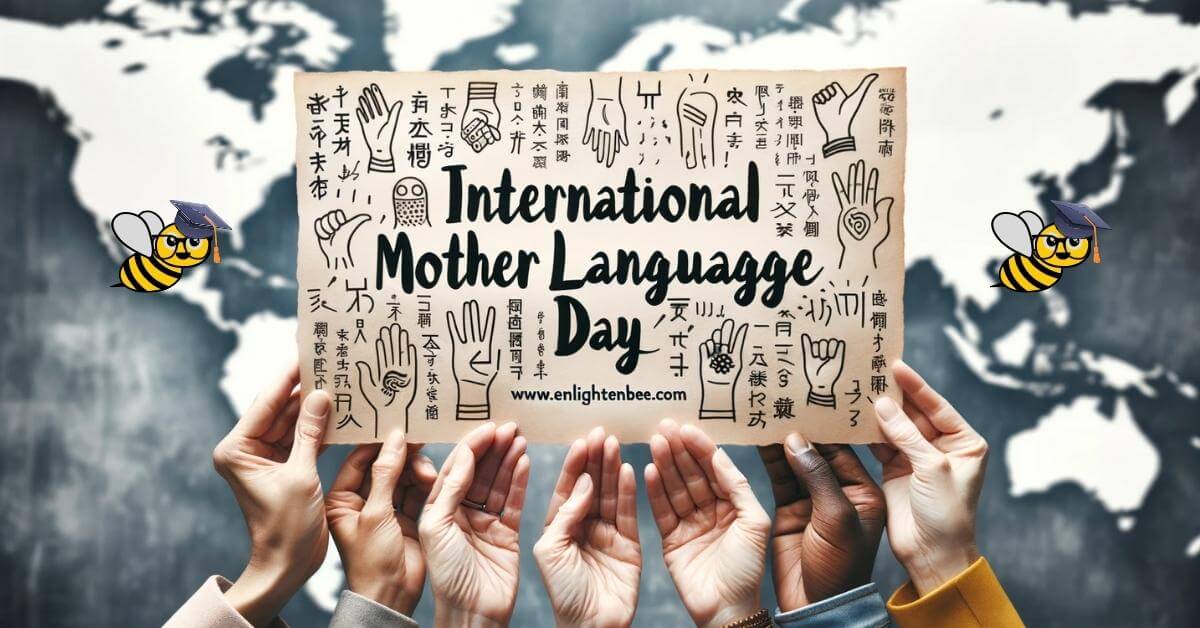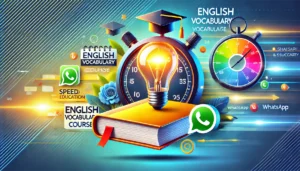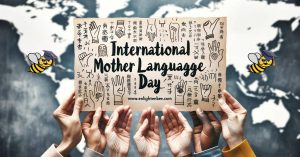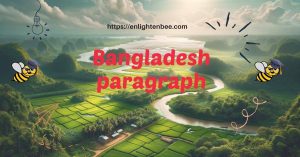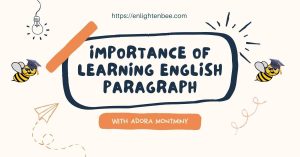1. International Mother Language Day paragraph
International Mother Language Day, celebrated on the 21st of February every year in Bangladesh, is a significant occasion that honors linguistic diversity and cultural heritage. This day holds a special place in the hearts of Bangladeshis as it commemorates the sacrifices made by language activists during the Language Movement of 1952. On this day, people gather at the Central Shaheed Minar in Dhaka and various other locations across the country to pay their respects to the martyrs who laid down their lives for the preservation of their mother tongue, Bangla. The significance of this day extends beyond borders, as it promotes the importance of linguistic and cultural identity globally. It’s a reminder that languages are not just a means of communication, but also a repository of history, emotion, and knowledge.The observance of International Mother Language Day involves various events and activities, such as cultural programs, art exhibitions, seminars, and discussions about the importance of multilingualism. Schools, colleges, and universities organize special programs to highlight the significance of linguistic diversity and the need to preserve and promote mother languages. It’s a day when people from all walks of life come together to celebrate their heritage and to reinforce the message that languages should be protected and cherished.
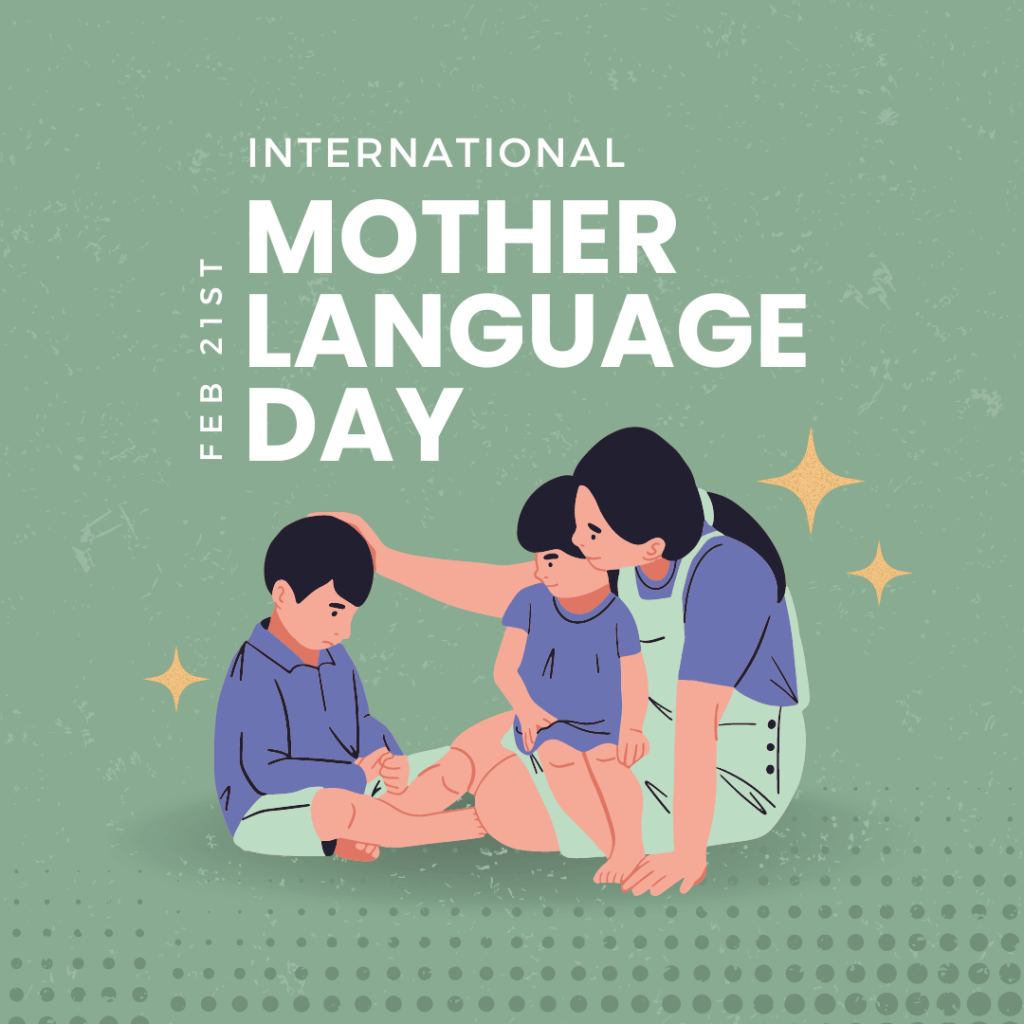
Difficult Words for International Mother Language Day paragraph:
- Commemorates (স্মরণ করা): Observes and remembers (an important event or person) with respect.
- Activists (সক্রিয় কর্মকর্তা): People who actively support or advocate for a cause or principle.
- Repository (ভাণ্ডার): A place where things are stored or kept.
- Observance (আচরণ): The act of celebrating or honoring something in a formal and public way.
- Inclusivity (অন্তর্বোধকতা): The practice or policy of including people who might otherwise be excluded or marginalized, especially due to their differences.
- Interconnected (সংযোগিত): Connected or related to each other in a way that allows for communication or interaction.
2. International Mother Language Day paragraph
International Mother Language Day, an emblem of linguistic pride and cultural identity, is commemorated on the 21st of February annually in Bangladesh. This date marks a poignant tribute to the Language Movement of 1952, a pivotal juncture in the nation’s history. During this movement, brave individuals laid down their lives to safeguard the sanctity of their mother tongue, Bangla, against attempts to suppress it. This day holds a deep significance as it symbolizes the relentless pursuit of preserving one’s language and heritage.
On this day, the Central Shaheed Minar in Dhaka becomes the epicenter of remembrance and homage. People from all walks of life, donning black and white attire, gather to pay their respects to the language martyrs. This solemn event reverberates with the echoes of courage and unity, underscoring the belief that language transcends mere words; it embodies the soul of a people and the essence of their history. The journey from the sacrifice of 1952 to the celebration of International Mother Language Day reflects Bangladesh’s unwavering commitment to cultural diversity and freedom of expression.
Throughout the country, educational institutions, cultural organizations, and communities host various activities to honor languages and their rich tapestry of meaning. Art exhibitions, poetry recitations, and seminars highlight the importance of linguistic pluralism and its role in shaping societies. These events not only reinforce the significance of mother languages but also underscore their contribution to enriching human understanding.
International Mother Language Day transcends its national origins and resonates globally. It serves as a reminder that every language holds a unique narrative, and its preservation is a collective responsibility. In a world rapidly embracing globalization, this day encourages individuals to cherish their linguistic roots while embracing the languages of others. It stands as a tribute to the power of languages to bridge cultures, transcend borders, and create a mosaic of human connectivity.
Difficult Words for International Mother Language Day paragraph:
- Emblem (প্রতীক): A symbol or representation of something.
- Pivotal (মুখ্য): Of crucial importance; central to a situation or event.
- Sanctity (পবিত্রতা): The quality of being sacred, holy, or inviolable.
- Suppression (নিষ্ক্রীয়ণ): The act of preventing something from being known or expressed.
- Essence (সার, অস্তিত্ব): The intrinsic nature or quality of something; the fundamental nature of a person, place, or thing.
- Reverberates (ঘোষণা করে ফেলে): Vibrates or echoes with a loud, clear sound.
- Unwavering (অচল): Steady or resolute; not changing or wavering.
- Pluralism (বহুবচন তত্ত্ব): The coexistence of different ethnic, religious, or cultural groups within a single society.
- Mosaic (মোজেইক): A combination of diverse elements to create a harmonious whole.
3. International Mother Language Day paragraph
International Mother Language Day, observed on the 21st of February each year, is a momentous occasion that holds profound cultural and historical significance. This day is an embodiment of the indomitable spirit of linguistic diversity and the preservation of one’s linguistic heritage. Commemorated globally, it particularly holds a special place in the heart of Bangladesh, where it originated.
The genesis of International Mother Language Day lies in the Language Movement of 1952 in Bangladesh. This movement was a resolute stand against the attempt to suppress the Bengali language by imposing another language. The sacrifices made during this movement resonate through time, as they symbolize the fervent dedication to preserving the essence of one’s culture and identity. To honor these sacrifices and to celebrate linguistic diversity, International Mother Language Day was officially recognized by UNESCO in 1999.
In Bangladesh, the day is marked by solemn remembrance and vibrant cultural events. The Central Shaheed Minar in Dhaka, a monument dedicated to the language martyrs, becomes a focal point of homage. People gather there to pay their respects, and the place reverberates with a sense of unity and historical consciousness. The Ekushey Book Fair, which coincides with this day, adds an intellectual dimension to the celebrations. It’s a testament to the profound impact of language on literature and education.
This day is more than just a tribute to a historical event; it is a celebration of linguistic pluralism and the recognition that every language is a repository of unique wisdom and expression. It underscores the idea that linguistic diversity enriches the fabric of human civilization. Beyond Bangladesh, this day resonates in regions where linguistic rights and diversity are cherished.
International Mother Language Day is a reminder of the power of words and the role of language in shaping societies and fostering unity. It emphasizes the need to protect and promote linguistic rights while embracing the languages of others. In an era of globalization, it is a call to celebrate both our roots and the interconnections that language creates across cultures and continents.
Difficult Words for International Mother Language Day paragraph:
- Momentous (গুরুত্বপূর্ণ): Of great importance or significance; having a major impact on events.
- Indomitable (অদম্য): Impossible to subdue or defeat; unconquerable.
- Heritage (ঐতিহ্য): The valued customs, traditions, and features of a cultural group passed down from previous generations.
- Genesis (উত্পত্তি): The origin or beginning of something.
- Resolute (দৃঢ়): Determined and unwavering in one’s beliefs or actions.
- Essence (সার, অস্তিত্ব): The intrinsic nature or quality of something; the fundamental nature of a person, place, or thing.
- Fervent (উত্তেজনাপূর্ণ): Displaying passionate intensity or feeling.
- Repository (ভান্ডার): A place or container where something is stored, kept, or held.
- Interconnections (সংযোগ): The state of being connected or linked together.
4. International Mother Language Day paragraph
International Mother Language Day, observed annually on February 21st, holds a profound place in the cultural and historical tapestry of the world. This day reverberates with the significance of linguistic diversity, the preservation of native languages, and the resilience of those who fought to defend them. While it is celebrated worldwide, its roots are deeply embedded in the soil of Bangladesh.
The origins of this day trace back to the Language Movement of 1952 in Bangladesh. The movement was a fervent response to the imposition of Urdu as the sole official language, disregarding the linguistic identity of the Bengali-speaking population. This attempt to suppress the Bengali language ignited a spark of resistance, leading to protests, sacrifices, and the tragic loss of lives. The sacrifices of the language martyrs culminated in the recognition of International Mother Language Day by UNESCO in 1999.
Bangladesh commemorates this day with a mix of solemnity and celebration. The Central Shaheed Minar in Dhaka, a monument built in memory of the language martyrs, stands as a symbol of defiance and unity. On this day, people gather at the monument, pay their respects, and offer floral tributes. The solemn Ekushey Boimela, the annual book fair, is an intellectual extension of this observance. It showcases the vibrancy of literature, the vitality of languages, and their integral role in shaping society.
Beyond its historical significance, International Mother Language Day is a poignant reminder of the power of language. Language is not just a medium of communication; it encapsulates the collective wisdom, identity, and aspirations of a community. The celebration of diverse languages enriches cultural heritage and enhances global understanding.
This day is also an invitation to reflect on the importance of linguistic rights. It prompts us to ponder the barriers that prevent people from accessing education and participating fully in society due to language disparities. It highlights the need for inclusive policies that empower linguistic minorities and promote multilingual education.
The global impact of International Mother Language Day extends beyond borders. It encourages countries to honor and protect linguistic diversity while fostering mutual respect and understanding among different linguistic communities. It serves as a testament to the resilience of languages, which have survived centuries, carrying the narratives of civilizations and connecting generations.
In a world that is becoming increasingly interconnected, International Mother Language Day calls for the celebration of languages as bridges that connect cultures. It emphasizes that while we embrace the languages of the world, we must also safeguard our native languages, which are the keys to our individual and collective identities.
This day is a celebration of unity in diversity, a recognition of the power of words to inspire change, and a tribute to the sacrifices made for linguistic freedom. It serves as a global reminder that languages are not just tools of communication but carriers of culture, heritage, and the essence of who we are as people.
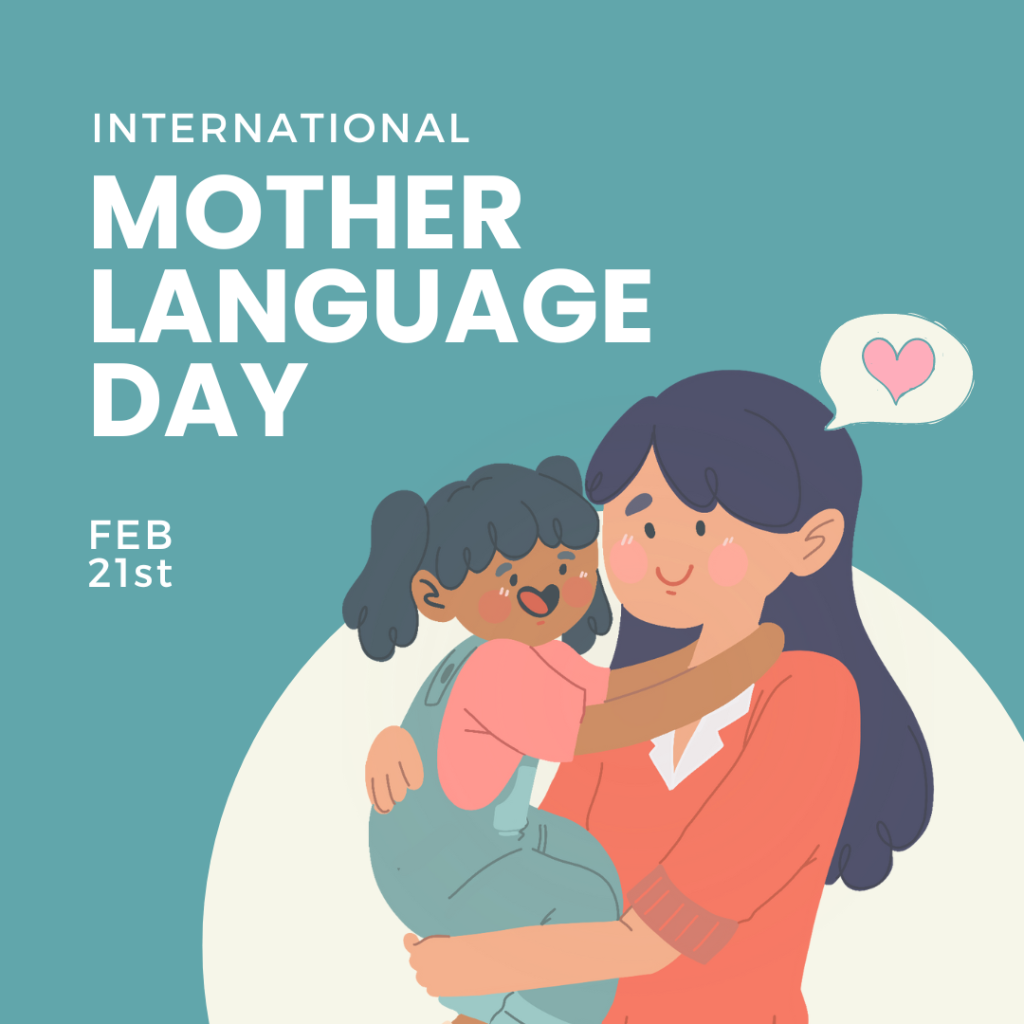
Difficult Words for International Mother Language Day paragraph:
- Tapestry (খাম): A complex and intricate combination or arrangement of things.
- Resilience (সহনশীলতা): The ability to recover quickly from difficulties or setbacks; adaptability.
- Fervent (উত্তেজনাপূর্ণ): Displaying passionate intensity or feeling.
- Defiance (অমীমাংসা): Open resistance or refusal to obey; challenging authority.
- Vitality (জীবনশক্তি): Liveliness and energy; the state of being strong and active.
- Encapsulate (সংক্ষেপ করা): To express the essential features of something in a concise or summarized form.
- Poignant (স্পর্শজনক): Evoking a strong sense of sadness, regret, or emotion.
- Empower (শক্তিপ্রদান করা): To give someone the authority, confidence, or ability to do something.
- Narratives (গল্প): The accounts or stories of events, experiences, or situations.
Most Important Paragraph
| Load Shedding Paragraph | Click Here |
| Metro Rail Paragraph | Click Here |
| Moonlit Night Paragraph | Click Here |
| Online Class and Traditional Class Paragraph | Click Here |
| Price Hike paragraph | Click Here |
| Road Accident paragraph | Click Here |
| Tree Plantation paragraph | Click Here |

